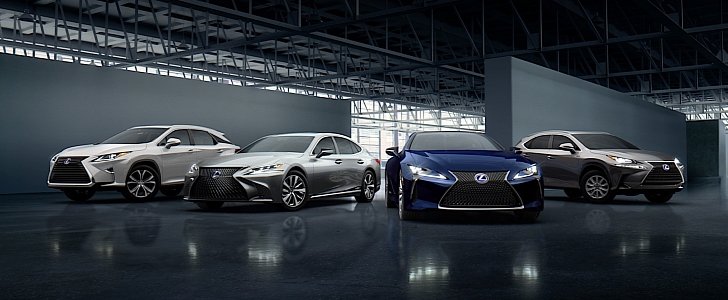The main reason behind the absence of widespread adoption of electric cars is the lack of charging infrastructure, coupled perhaps with the so-called range anxiety. In the case of hybrids, the only thing preventing bigger sales is perception.
This is the conclusion Japanese automaker Lexus reached following recent research it conducted. Without saying how many people have taken part in the research, or from where, Lexus claims that in the mind of the American consumer hybrids equal less performance, less value or less styling.
That might very well be the case. As you know, Lexus is part of Toyota. Toyota launched on the market over two decades ago the Prius, the world’s first widespread hybrid electric vehicle and at the same time the main reason stars and others got roasted during TV shows.
Years of making Prius-related jokes have taken their toll. In an attempt to shake this perception from the minds of potential buyers, Lexus will be launching this week a new marketing campaign called Fast as h, meant to show how good it is to own a hybrid.
The campaign will comprise a new TV spot which will air during network and cable sports events, during late night shows and cable programming. The spot will be supported by the deployment of digital and social campaigns, print ads and even a Times Square digital billboard.
“We use Lexus’ legendary craftsmanship to engineer high-performance hybrids, and we now offer them at a comparable price to gas models,” said Lexus vice president of marketing Cooper Ericksen.
“Not just for the eco-conscious, Lexus hybrids offer performance, luxury and the added benefits of hybrid.”
In 2017, the total number of cars sold on the U.S. market was of 17.23 million units. Only a fraction of that were hybrid cars.
Historically, the U.S. is the world’s largest market for hybrid cars, after Japan. In 2016, the nation had a fleet of over 4 million such vehicles on the streets, one million behind the Japanese.
That might very well be the case. As you know, Lexus is part of Toyota. Toyota launched on the market over two decades ago the Prius, the world’s first widespread hybrid electric vehicle and at the same time the main reason stars and others got roasted during TV shows.
Years of making Prius-related jokes have taken their toll. In an attempt to shake this perception from the minds of potential buyers, Lexus will be launching this week a new marketing campaign called Fast as h, meant to show how good it is to own a hybrid.
The campaign will comprise a new TV spot which will air during network and cable sports events, during late night shows and cable programming. The spot will be supported by the deployment of digital and social campaigns, print ads and even a Times Square digital billboard.
“We use Lexus’ legendary craftsmanship to engineer high-performance hybrids, and we now offer them at a comparable price to gas models,” said Lexus vice president of marketing Cooper Ericksen.
“Not just for the eco-conscious, Lexus hybrids offer performance, luxury and the added benefits of hybrid.”
In 2017, the total number of cars sold on the U.S. market was of 17.23 million units. Only a fraction of that were hybrid cars.
Historically, the U.S. is the world’s largest market for hybrid cars, after Japan. In 2016, the nation had a fleet of over 4 million such vehicles on the streets, one million behind the Japanese.

